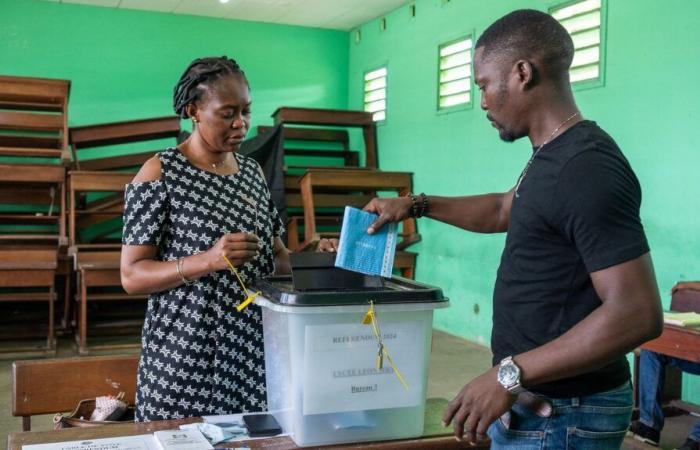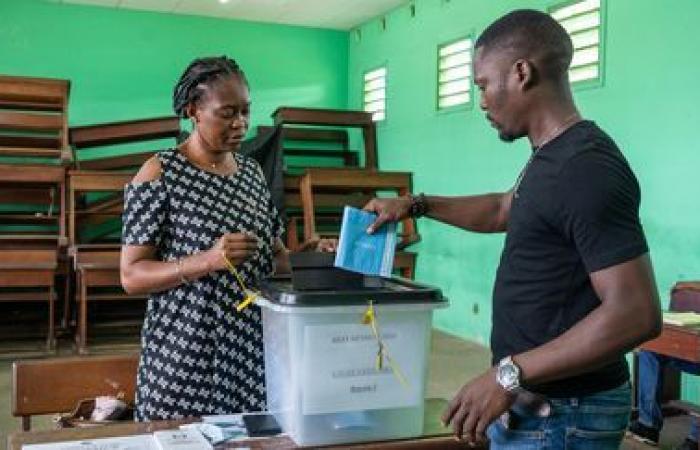The participation rate also stood at 53.54%, well below initial estimates, according to provisional data from the Ministry of the Interior.
Published on 18/11/2024 10:05
Reading time: 2min

The Gabonese overwhelmingly validated with 91.8% “yes” the new constitution drafted by the military regime of General Brice Oligui Nguema. The reform is presented as a “major turning point” for the country after the fall of the Bongo dynasty. Crucial issue of this consultation carried by the new strong man of the country, the participation rate rose to 53.54% – well below the first estimates (71%) –, according to provisional data published Sunday November 18 by the Ministry of the Interior.
A total of 868,115 voters were called on Saturday to cast a green ballot for “yes” or red for “no” during the voting day, presented by the government as a “historic moment”a little more than a year after the putsch which ended 55 years of rule by the Bongo family. The 173 articles of the new fundamental law, the result of contributions collected in the spring during a national dialogue, establish, among other things, a seven-year mandate renewable only once, with a presidential regime endowed with strong executive power, without Prime Minister and the impossibility of a dynastic transmission of power. His second article sets in stone the accession to power of the junta led by General Oligui on August 30, 2023, with the establishment of a “Liberation Day”.
Once the final results have been confirmed by the constitutional court, the next step will be the holding of a presidential election, currently scheduled for August 2025, to put a definitive end to the transition. General Oligui promised to return power to civilians but he does not hide his presidential ambitions by also promising a “rise to bliss” to this country which is both rich in oil and heavily in debt. “We are here to build the country and we will build this country together”he said Friday.
Since Friday, the authorities have reinforced the curfew put in place since the putsch, with timetables “refurbished” from midnight to 5 a.m. “during the entire period of the electoral process”. No major incidents were reported during the voting day, according to the authorities and according to the Network of Citizen Observers (ROC), a platform of local associations supported by the United Nations. The government presented it as a “guarantee of transparency”has the presence of around thirty international observer missions.








